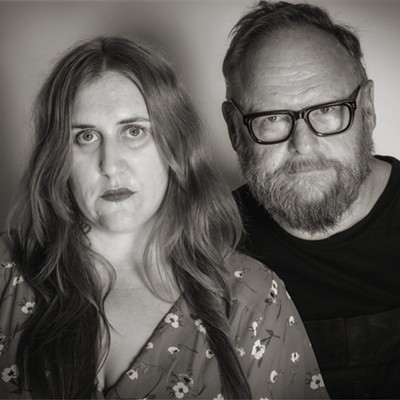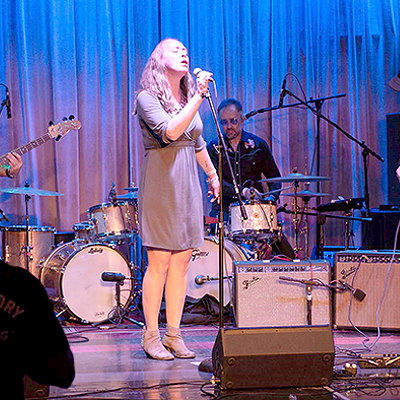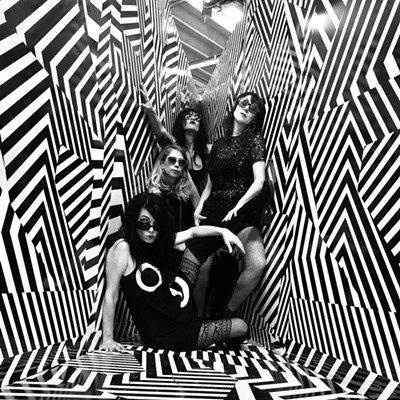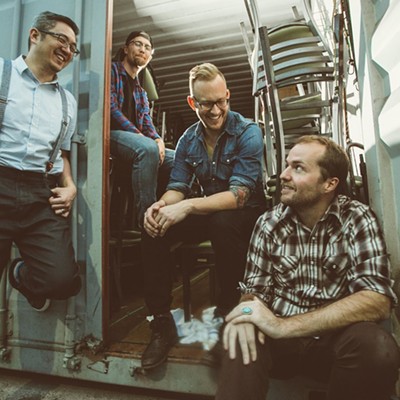He's a guitar-playing, wannabe folkie high-school dropout whose band enjoyed a brief brush with fame and who writes boring pop songs that vaguely have something to do with personal empowerment. He's been referred to as "an intelligent songwriter." If "intelligent songwriter" means stringing together lots of abstract phrases and weak similes, then Joplin is indeed one smart cookie. Take it from Joplin himself: "I may not be as smart as the Sunday Times crossword puzzle. Big words get me into trouble," he admits on his fourth album, The Future That Was.
Joplin tooled around the country as a teen-ager, working odd jobs in pursuit of his dream to be a real, live folk singer a la Dylan and Woody Guthrie, despite the fact that these days hopping freight trains with a cheap guitar strapped to your back is about as original as abstract art. Joplin's musical career took off in Atlanta, Ga., when singer-songwriter Shawn Mullins befriended him and released Joplin's third album, Useful Music, on his own SMG label. Joplin's new label, Artemis, is the home to such performers as the Pretenders, Steve Earle, Jay Farrar and Kittie (yes, Kittie); such a biography may pique one's interest in Joplin, but rest assured, the interest dies a quick death upon listening to the music.
The Josh Joplin Group attempt to stratify their songs, based around Joplin's abysmal lyrics, with horns and strings; the only song this is successful on is the first one, "Must Be You," since it's the first song and you're not bored yet. But two minutes in and the record already seems old, what with Joplin's cliche sentiments like, "Let the people stare, I can't tell them what to do." By the second verse of the second song, Joplin's preaching that "We live too fast and then we die," and it takes an obscene amount of concentration to pay attention to the rest of the record. Each track sounds tiresomely familiar, like a song your band in high school wrote, with predictable flourishes and crescendos that fall flat. The group strains at rocking out on a few songs, but power chords played loudly with minimal distortion don't exactly incite riots. The Future That Was just simply lacks creative energy.
"I Am Not The Only Cowboy" is Joplin affecting a spoken-word style; "I am not the only cowboy in this one-horse metaphor," says Joplin, leading one to ask, what one-horse metaphor are we talking about here? Does he mean that he's not the only confused loner walking around hiding underneath his oversized Stetson? Or that he's not the only artist relying on preconceived, romantic notions of what it means to be a singer-songwriter, wandering aimlessly through the countryside?
Joplin is rather fond of comparing himself to celebrities ("I sound like Michael Stipe and dream like Carl Jung"; "We're all Pat Boone by different names"); perhaps this is a futile attempt to elevate himself through association. Because, in the world of music, with a name like Joplin, without the creative insight, you have to prove yourself. The Future That Was, however, merely proves that Josh Joplin has a lot of work to do.







